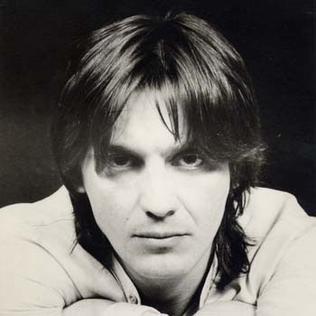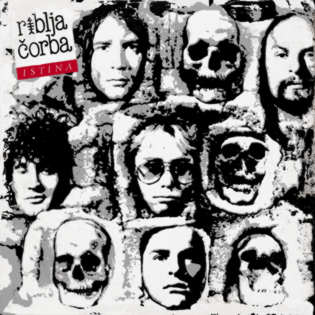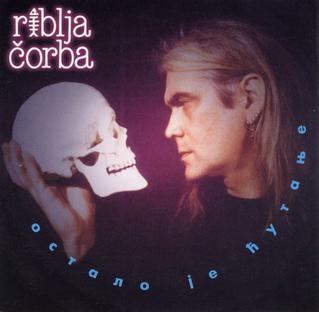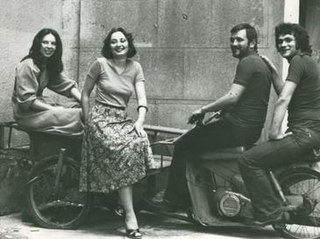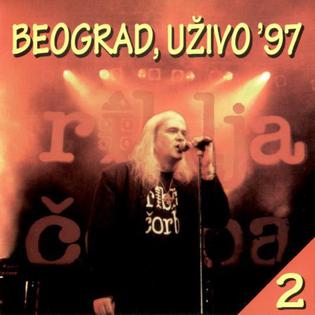| "Lutka sa naslovne strane" | ||||
|---|---|---|---|---|
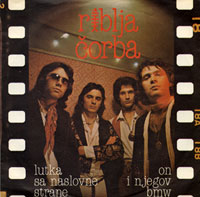 | ||||
| Single by Riblja Čorba | ||||
| B-side | "On i njegov BMW" | |||
| Released | December 12, 1978 | |||
| Format | 7" single | |||
| Recorded | 1978 | |||
| Genre | Hard rock | |||
| Length | 3:06 | |||
| Label | PGP-RTB | |||
| Songwriter(s) | Bora Đorđević | |||
| Riblja Čorba singles chronology | ||||
| ||||
"Lutka sa naslovne strane" ("Front Cover Babe") is the debut single from the influential Serbian and former Yugoslav rock band Riblja Čorba.

Serbia, officially the Republic of Serbia, is a country situated at the crossroads of Central and Southeast Europe in the southern Pannonian Plain and the central Balkans. The sovereign state borders Hungary to the north, Romania to the northeast, Bulgaria to the southeast, North Macedonia to the south, Croatia and Bosnia and Herzegovina to the west, and Montenegro to the southwest. The country claims a border with Albania through the disputed territory of Kosovo. Serbia's population is about seven million. Its capital, Belgrade, ranks among the oldest and largest citiеs in southeastern Europe.
Rock music is a broad genre of popular music that originated as "rock and roll" in the United States in the early 1950s, and developed into a range of different styles in the 1960s and later, particularly in the United Kingdom and in the United States. It has its roots in 1940s and 1950s rock and roll, a style which drew heavily on the genres of blues, rhythm and blues, and from country music. Rock music also drew strongly on a number of other genres such as electric blues and folk, and incorporated influences from jazz, classical and other musical styles. Musically, rock has centered on the electric guitar, usually as part of a rock group with electric bass, drums, and one or more singers. Usually, rock is song-based music usually with a 4/4 time signature using a verse–chorus form, but the genre has become extremely diverse. Like pop music, lyrics often stress romantic love but also address a wide variety of other themes that are frequently social or political.

Riblja Čorba is a Serbian and Yugoslav rock band from Belgrade. The band was one of the most popular and most influential acts of the Yugoslav rock scene.
Contents
The song, a hard rock ballad about a fame-hungry model, was originally written during the time Riblja Čorba leader Bora Đorđević was a member of the acoustic rock band Suncokret. The song led to a clash between Đorđević and other members, which caused Đorđević to leave Suncokret and join Rani Mraz. After only three months spent in Rani Mraz, Đorđević left the band and with the members of the band SOS formed Riblja Čorba, which released "Lutka sa naslovne strane" as their debut single. On the song recording jazz trumpeter Stjepko Gut played the piano.
Hard rock is a loosely defined subgenre of rock music that began in the mid-1960s, with the garage, psychedelic and blues rock movements. It is typified by a heavy use of aggressive vocals, distorted electric guitars, bass guitar, drums, and often accompanied with keyboards.

Borisav "Bora" Đorđević, also known as Bora Čorba, is a Serbian singer, songwriter, poet and goalkeeper. He is best known as the lead singer for the Serbian and Yugoslav rock band Riblja Čorba. Renowned for his brand of poetic lyrics and husky baritone voice, Đorđević is widely considered as one of the top and most influential authors of the Serbian and Yugoslav rock scene.
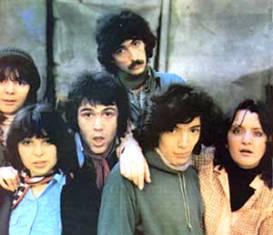
Suncokret was a Yugoslav acoustic rock band from Belgrade.
The song was performed by Đorđević and Arsen Dedić on the live album Arsen & Bora Čorba Unplugged `87 .

Arsenije "Arsen" Dedić was a Croatian singer-songwriter. Dedić wrote and performed chansons as well as film music. He was also an award-winning poet and was one of the best-selling poets of former Yugoslavia.
In 2006 the song was ranked #12 on the B92 Top 100 Domestic Songs list. [1]
100 najboljih domaćih pesama was a list compiled by the Serbian Radio B92. In 2006, Radio B92 organized the poll for the selection of top 100 Yugoslav songs. The whole list was presented on radio B92 on November 5, 2006. The list contains popular music songs from former Yugoslavia and the songs from successor states.
B-side features song "On i njegov BMW" (trans. "He and his BMW").

BMW AG is a German multinational company which currently produces automobiles and motorcycles, and also produced aircraft engines until 1945.
